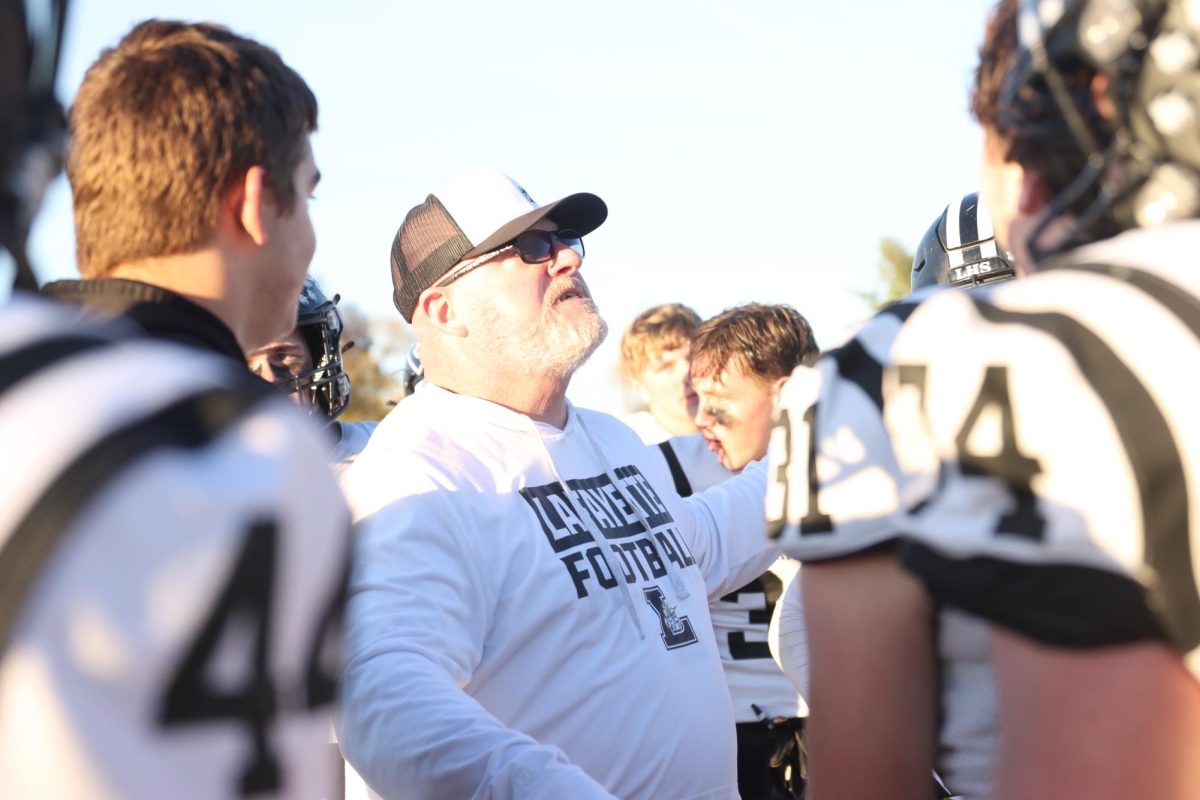Sex should not be stigmatized
Missouri needs reform in its sexual education curriculum

Missouri’s and Rockwood’s sex education program has created a harmful stigma around having sex and its putting adolescents at risk. The curriculum excludes LGBTQ+ students, only presents part of what is needed in order to participate in sex safely and isn’t separating teacher and religious preference from legitimate education when it comes to safe sex, contraceptives and STI prevention.
December 9, 2021
Let’s talk about sex.
Sex is a human biological function that is necessary to continue our species. In short, we were built to have sex. It is one of the most normal things about people, yet one of the most hidden.
Why is it that way? Humans have been reproducing since they appeared on the planet, though the means of reproduction and reasons for intercourse may have changed over the years, there is one thing that has stayed the same. We were built to have sex. So why is it so taboo? Is it possible that the way we were taught about sex has influenced our view on it?
When we were being taught about the changes our bodies were going through, my class of elementary and middle school girls was told that our body was a flower, and we were blooming. However, they also told us that we couldn’t show off our beautiful petals as being openly sexual was unsafe and dirty. They, of course, told us how reproduction happened, but they always told us we shouldn’t do that. We were taught that abstinence is the best answer, and methods of having safe sex were not in the curriculum.
I expected to learn more in high school. Surely, they were a little censored because we were young, right? Well, when I took a health class at Lafayette, they told us what our reproductive organs do, and then told us not to use them. We learned briefly about sexually transmitted infections (STIs) and weren’t told where to get tested for them. They told us about accidental pregnancies and only one way to prevent them. Abstinence. When sex is a brand new and fun thing teens are just dying to do, they tell us not to.
But it’s not like people just don’t have sex. People have sex all the time. Teenagers have sex all the time. But they’re doing it in sneaky, unsafe ways. It’s part of the appeal. When you tell someone not to do something, it only makes them want to do it even more.
According to the World Health Organization, “more than 1 million STIs are acquired every day, worldwide.” What’s going on here? Missouri is not required to even teach sexual education, however, Missouri is required to teach about health and how to prevent STIs like HIV/AIDS.
The Missouri Sex Ed curriculum requires public schools to present an abstinence-based curriculum as the preferred choice. That doesn’t make sense to me. It is up to the people involved to decide how they behave when it comes to their own sexual lives. Imagine turning 16-years-old and wanting to learn to drive a car. The driving instructor says that people get in accidents driving cars, so instead of teaching the safest ways to drive and the importance of a seatbelt, they teach that the best way to avoid accidents is to not drive.
Similarly, instead of teaching teens methods to have sex safely, they tell you that the only way to avoid accidents, illnesses and babies is to not have sex. Condoms and other forms of birth control are out of the question.
And, I am also aware that religious beliefs are a factor in much of the decision-making. If abstinence is the preferred choice for a specific religion, then students and families with those beliefs are free to make that choice outside of school, but by omitting other important information in sexual health, schools are taking important choices away from other students.
It shouldn’t be a student’s responsibility to go find out information on their own. There is too much misinformation out there or a risk that they will not seek out the information at all to learn about their own bodies. And, many parents are not providing the information to their children either. That’s like only teaching a little bit of math, and then telling students “The rest is up to you. I don’t really agree with that kind of algebra so we’re not gonna talk about it.”
If schools are going to teach us about health, then they need to teach us about all of it. Parents are allowed to remove students from the sex-ed portion of health, which is referred to as an opt-out, if they really have concerns with the content and content and prefer to have the conversation at home.
In addition, when a school uses a class to teach all of its students, it should teach all of its students, including those in the LGBTQ+ community. According to Sex Education Collaborative, Missouri is not required to even mention that there are other sexual orientations. This is leaving out LGBTQ+ students and putting them more at risk for STI acquisition.
Students who identify as heterosexual are already lacking a proper education when it comes to sex, but leaving out LGBTQ+ students is just as unacceptable. It’s comparable to teaching only about American History in a World History class. Students are only getting part of the story.
If Missouri schools include a sex ed curriculum, they are required to give instruction on consent. However, it is vague and often leaves out important issues like revoking consent and a controversial topic known as stealthing. Stealthing is when protection is removed during sex without the other party knowing. Both parties consented to protected sex, but when one removes the protection, it is violating consent and the other person involved. This is just one of the many important and possibly controversial conversations that needs to happen in sex-ed discussions.
Young adults must understand the full extent and importance of consent. The numbers of sexual assault and rape allegations and charges are growing in high schools and colleges across the country because of a lack of clear understanding of consent and respect.
All of these lapses in sex-ed programs are dangerous on many levels. Teens need to be comfortable with their knowledge and comfortable asking questions. Teens who are too embarrassed or ashamed to buy condoms are going without them and perhaps getting themselves into even worse situations.
Teen girls are discouraged to use birth control-whether that be for periods or safe sex-because their parents are horrified at the idea they might be sexually active. But it seems that it would be more horrifying for that same girl to go home to her mother to tell her she’s pregnant because she didn’t know how to get or use protection. Young women and girls are not taught about Plan B contraception options or abortion, and the pros and cons of each which may also help them learn the importance of making safe choices about becoming sexually active.
It is entirely unrealistic to assume or expect young people in relationships aren’t or won’t have sex. The legal age of consent in Missouri is 17 years old. There are also laws in Missouri referred to as “Romeo and Juliet laws” that create exceptions to the age of consent.
The Missouri Sex Education program is flawed at least and entirely broken at most. Calling it sex ed is a joke considering how much important information is omitted and the number of teens it fails to truly educate.
Rockwood’s Mission, Vision and Values states, “We put students at the heart of everything we do, and we are guided by the academic, social, emotional and physical needs of our students. Our work is to provide a meaningful, challenging education that connects all students to learning and honors their unique gifts.” By leaving so much out of the curriculum, Rockwood is holding students back. The state of Missouri does not require sex education to be taught. But, Rockwood is making the decision to teach it. So, if they are going to teach it, really teach it and teach all aspects so that teens have the information they need to navigate the real world they live in.































